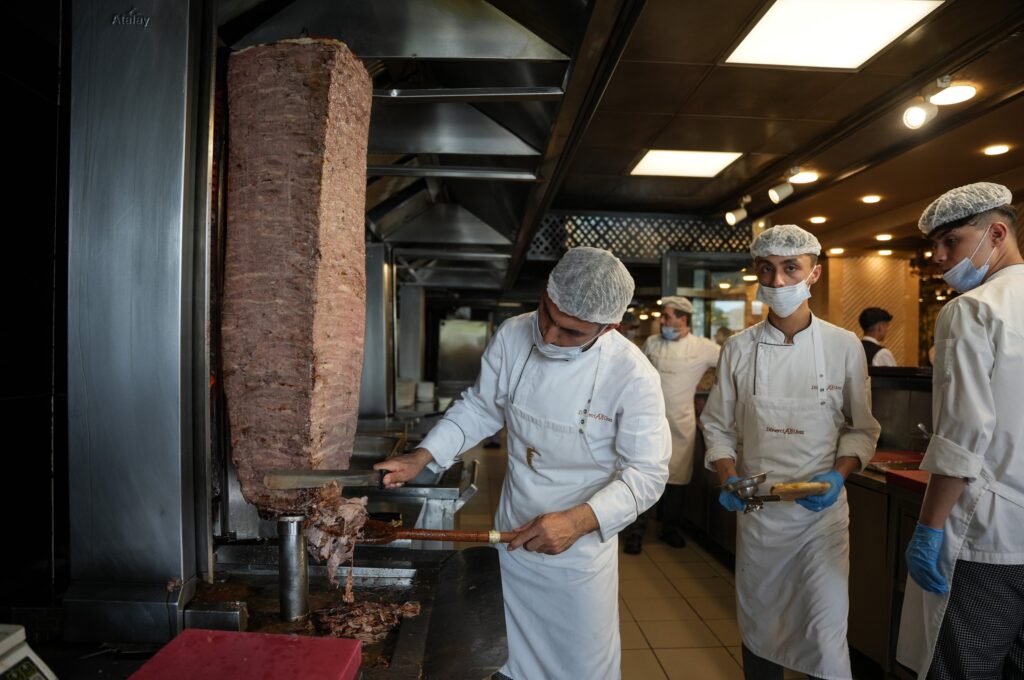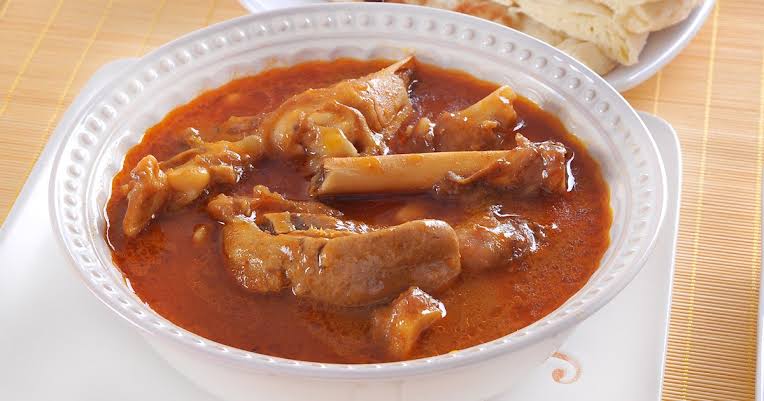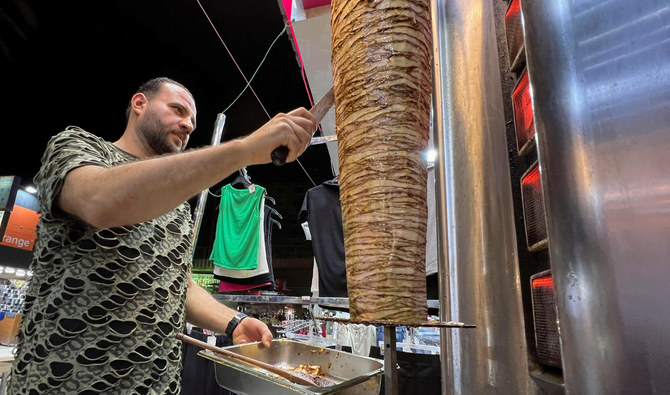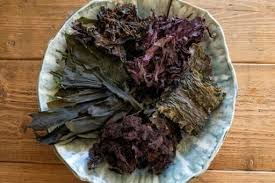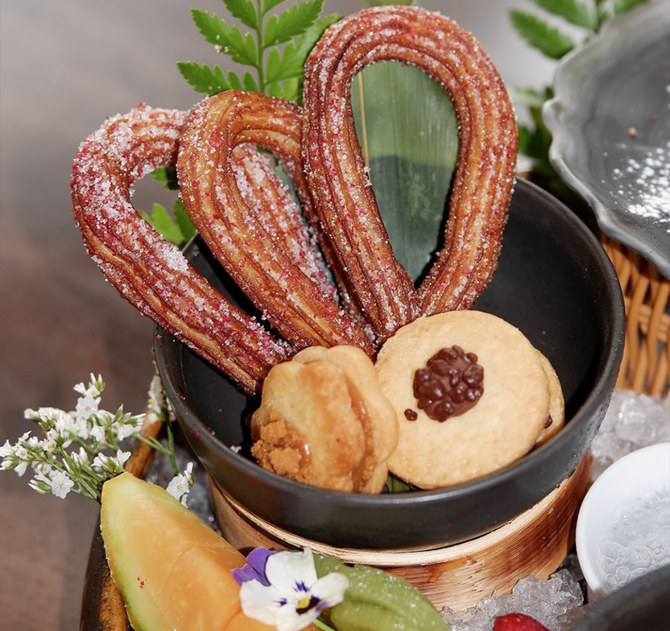
ISTANBUL (Dailysabah): The place itself is smaller than the corner where it stands, as its gregarious if unassuming hosts greet passersby, patrons and regulars with neighborly humility, cooking out of the richness of their country’s traditions from a wide open door, offering a few chairs and tables on a side street with which to encompass the illustrious and vast culinary cultures of Egypt, known by some as the mother of the world.
Egyptian food is synonymous with bread, as the concrete block rooftops of the sprawling African megalopolis are known to become de facto open-air ovens, the richness of its Nile-fertilized wheat baked under the heat of the infamously blazing sun. It is as if the Earth itself were one great stove, roasting grain and flesh at just the right temperature according to the human appetite.
The bread at Kem Küm is unforgettable, hearty with its peculiarly dense floury dough. The heaviness of bread is an indication of its substance, its wholeness, its textures a function of the air that courses through it. And the condition of empty space within it is not only advantageous for each bite of it on its own, but as a vessel by which to absorb the full-flavored sauces that come with its various dishes.
The top staple at Kem Küm is what they describe as Egypt’s national dish, known as “koshary,” which, in Egyptian Arabic, means, “mixed.” It is a common sight to see “koshary” stands throughout Cairo and across the desert-born lands that spread out from its Mediterranean delta and down the pyramid-building regions defined by life along the banks of the world’s longest river.
To mix and mingle
Kem Küm prepares “koshary” more like a fine delicacy than the ubiquitous street food that it is in Egypt. It is often only available on certain days. But when their cooks do make it, the wait is more than worth it. “Koshary” is a mixture of pastas and lentils saturated in a savory tomato-based sauce. The trick of the dish is in the craft of its caramelized onions. Altogether, the ingredients are irresistibly delicious.
The size of the “koshary” bowl is important too, to affect its enjoyment. The fact that it is served in such plentiful quantities brings about all of the magic of abundance, stirring a sense of joy at the mere fact that there is so much to be had. That is, finally, the significance of “koshary,” as a food engineered to make the most out of very little. Quite simple elements, when united and consolidated into a whole, become greater than the sum of their parts.
For the reasoning behind its preparation, there are ample metaphors that might be gleaned concerning the meaning of diversity within a single nation, a lesson that Egypt, as a Mediterranean country, is especially familiar with, but which, as also an integral part of the Middle East and Africa, it has struggled to accommodate. To link a uniquely satisfying source of nourishment with feelings of national camaraderie is a naive, but effective proposition.
The same goes with Egyptian bread on a deeper level. In Egypt’s local dialect of Arabic, bread is called, “aish,” or “aish baladi,” which is homonymously synonymous with “life,” and “the life of the country,” respectively. Kem Küm offers the Egyptian pita on its own, a flatbread in four parts. It goes particularly well with the Egyptian adaptation of falafel, which in the Egyptian language is called, “taameya,” literally from the root word for “food” itself.
On the tongue
The many and distinctive items on the menu at Kem Küm are impressive in their scope, even more so by the fact that it is a vegan restaurant. But again, Egyptian food is characterized by its simplicity, utterly basic to the point of almost disappearing into the oblivion of its essential form. That is the case with “fuul” (pronounced “fool”) a most authentic offering at Kem Küm, its name alone reminiscent of the gourd-shaped vats out of which Cairenes eat it.
With a party of friends, Kem Küm is a place for sweet and wholesome fare, where its Egyptian chefs and waiters are as generous with their smiles as they are with the wonders of their culinary artistry. There is such an array of dishes at Kem Küm. It seems practically endless from their walnut “muhammara” (a red pepper dip), to their “kabsa” basmati rice dish laden with dried nuts and spices.
Out of the way, only a few steps from the Sea of Marmara in Kadıköy’s Moda quarter, Kem Küm is an insider’s delight for Istanbul’s more adventurous taste-testers looking for a different kind of alimentary experience that will complement the palates of the surrounding Turkish cuisines, while opening an avenue by which to understand how food, like nations, are defined by the celebration of their distinctions, even as their likenesses are tastable.
The post Like an Egyptian: Vegan feast at Kem Küm appeared first on The Frontier Post.



